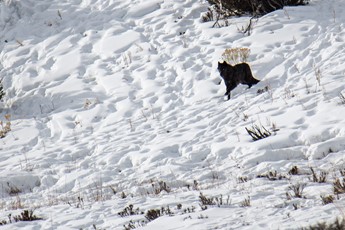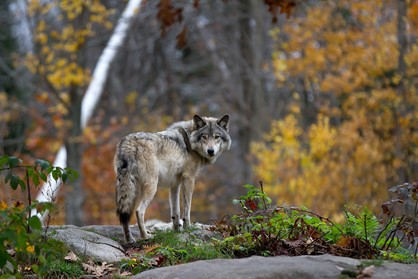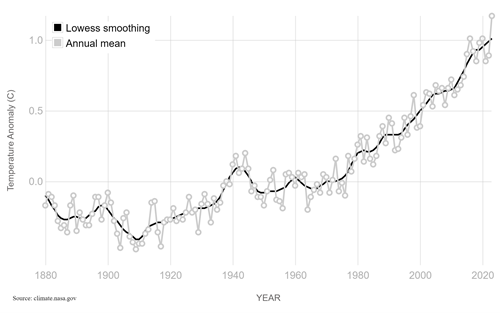Take Action
Legislation We Are Following
For information on the Endangered Species act go to https://www.worldwildlife.org/pages/the-us-endangered-species-act
The Animal Legal Defense Fund files high-impact lawsuits to protect animals from harm, provides free legal assistance and training to prosecutors in their fight against animal cruelty, supports animal protection legislation, and provides resources and opportunities to law students and professionals to advance the field of animal law.
The Big Cat Public Safety Act would make it illegal for exhibitors (such as circuses and zoos) to allow direct contact with cubs, prohibit private individuals from possessing lions, tigers, leopards, cheetahs, jaguars, cougars, or any hybrid of these species as pets (people who have already own these animals before the bill will be able to keep their animals but would need to register them), prohibit public petting, playing with, feeding, and photo ops with cubs these acts commonly known as "Cub Petting". This legislation was reintroduced into the senate in April 2021 and passed in 2022, now as of December 2022, the bill is awaiting a signature from the president and can then be put into effect. The Netflix Show "Tiger King" has brought this issue to people’s attention here in the states. However, America is not the only country dealing with similar issues.
We recommend that you check out this short video from CBS.
This act has been passed into law as of December 2022. This act removes the requirement that new drugs need to be tested on animals, this overwrites the Federal Food, Drug, and Cosmetics Act of 1938 which had the requirement to have to test new drugs on animals. With our developments in drugs and medicine in the last 84, the need for animal testing is hugely reduced, and we are glad to see changes like this happening, which are big steps toward the direction of animal rights and safety! The bill has been linked below!
This Act creates a Horseracing Integrity and Safety Authority as a private self-regulatory organization. The Authority must develop rules related to horseracing, including anti-doping, medication control, and racetrack safety rules.
There is a common way shark fins are acquired, known as "finning," in which live sharks have their fins cut off, after which the sharks are thrown back into the water to die from blood loss. The hunting of sharks for the purpose of taking their fins has been illegal in the United States for some time. However, selling shark fins is still perfectly legal; the market of shark fins in the united states encourages the international hunting of sharks for their fins. Thankfully, the Shark Fin Sales Elimination Act was passed through congress in December 2022 and has now gone to President Biden to sign into law. The bill makes it illegal to possess, buy, or sell shark fins or any product containing shark fins, except for certain dogfish fins. The possession of these would still be allowed as long as they were acquired in accordance with the law with a license or permit. Shark populations have been decreasing worldwide as they are killed at a rate faster than the population can recover from; it is estimated that 100 million sharks are killed each year due to finning. With this bill soon being signed into law, we can hope that we can see an effect on shark populations, and we hope that other countries around the world can follow suit to protect sea life.
A wildlife killing contest is a competition in which participants compete to kill the greatest number or largest animals of a particular species within a specified timeframe. These events are typically organized for various species, such as coyotes, foxes, bobcats, raccoons, and even wolves.
In the case of coyotes, these contests are especially popular, as they are often perceived as pests by farmers and ranchers. However, killing contests are typically indiscriminate, and any coyote, regardless of age or sex, can be targeted. The methods used to kill coyotes in these contests are often inhumane, including shooting, trapping, or using dogs to chase and kill them.
Wildlife killing contests are harmful for several reasons. They disrupt natural ecosystems by disrupting predator-prey relationships and altering population dynamics. The indiscriminate killing of coyotes can lead to unintended consequences, such as an increase in the population of prey species like rabbits and rodents, which can then lead to other problems like crop damage. These contests often promote a culture of violence and desensitization towards killing animals.
The contests are often criticized for their disregard for animal welfare. Many states and communities have begun to ban these contests in recent years, recognizing the negative impacts they can have on wildlife and the environment.
We have a video that we feel you should check out about killing contests, however, we'd like to say that view discretion is heavily advised:
March 2021
 I was fortunate enough to get this photo while in Yellowstone a few weeks ago. The wolf you see in this photo was part of the Wapiti pack located in the northern part of the park. I also was excited to be meeting Rick McIntyre, a famous wolf expert who has been watching and observing wolves for many years! Rick's valuable insight from this work has brought a significant amount of information and data to the park about the lives of wolves. He first started logging sightings, after wolves were introduced into the park in May of 1995. Since then he has recorded over 100,000 wolf sightings. After he retired from working at Yellowstone Park, he began writing books about the lives of these amazing animals. He has authored The Rise of Wolf 8: Witnessing the Triumph of Yellowstone's Underdog, The Reign of Wolf 21: The Saga of Yellowstone's Legendary Druid Pack, and the Redemption of Wolf 302: From Renegade to Yellowstone Alpha Male.
I was fortunate enough to get this photo while in Yellowstone a few weeks ago. The wolf you see in this photo was part of the Wapiti pack located in the northern part of the park. I also was excited to be meeting Rick McIntyre, a famous wolf expert who has been watching and observing wolves for many years! Rick's valuable insight from this work has brought a significant amount of information and data to the park about the lives of wolves. He first started logging sightings, after wolves were introduced into the park in May of 1995. Since then he has recorded over 100,000 wolf sightings. After he retired from working at Yellowstone Park, he began writing books about the lives of these amazing animals. He has authored The Rise of Wolf 8: Witnessing the Triumph of Yellowstone's Underdog, The Reign of Wolf 21: The Saga of Yellowstone's Legendary Druid Pack, and the Redemption of Wolf 302: From Renegade to Yellowstone Alpha Male.
These stories are very important because wolves desperately need federal protection from extreme and cruel wolf-killing laws recently enacted in the states of Montana, Idaho, and Wyoming. These laws are destroying the state’s wolf populations, undoing years of progress in wolf conservation. This story from the Washington Post describes what is happening to our wolves of Yellowstone. If you get a chance please take a few minutes to read this article. Our park and the surrounding area have lost about 85 wolves to hunters this year and one entire pack has been decimated. Something needs to be done to stop this or our wolves will be gone soon.

This is one of the books written by Rick. It is an amazing story - Amazon.
December 2021
The federal government is evaluating the wolf hunting regulations being administered by Wyoming, Montana and Idaho. These new laws allow little to no restrictions of the taking of wolves - including reduction of the population significantly. See article. The change in hunting laws allow hunters to take wolves in any way they see fit - baiting, trapping, etc. - in fact, in Idaho, the State is actually paying hunters to come in and shoot them from helicopters or whatever method they so choose. There are hopes that a moratorium will be put in place to provide temporary protection and relief to the wolves from being slaughtered.
A tri-memorandum of agreement (MOA) is being put into place between Wyoming, Idaho and Montana to delist grizzly bears – article. Grizzly bear biologist, Dave Mattson wrote in Grizzly Times blog post published before the plan was approved, “The methods contained in the States’ MOA are so egregiously flawed as to call into question the competence and motives of the wildlife managers who concocted them.” This MOU is close to being approved and will create many issues for proper bear management within these states.
November 2021
We have been watching changing legislation in Montana, Idaho, and Wyoming. These states are allowing the killing of large populations of its wolves. At one time the wolves were under the protection of the Endangered Species Act. This is no longer the case. Not only are states allowing hunting of the wolves, but they are also allowing non-humane ways of their killing – including baiting, hunting from helicopters, hounds, etc. No compassion in a kill - this is so very sad (see the newspaper article). The US Fish & Game is going to review the information but does not have any plans to address it for at least a year. By then much damage will be done to the wolf population. In addition, sadly part of one of the most popular wolf pack or Junction Butte pack were killed. This is because the State of Montana is now allowing shooting of wolves close to the perimeter of the park.

Climate change is the shift of temperatures of the Earth over a long period of time, as well as the rising water levels and changes in weather. These changes in temperature have been primarily man-made by the releasing of CO2, primarily from the burning of fossil fuels including coal, oil, and gas. The effects of climate change are already taking their effect on our world and if we don't take action now it's bound to get worse.
Effects of Climate Change
According to NASA in their Global Land-Ocean Temperature Index temperatures have risen 1.24°C from 1900 to 2023. NASA says, "The 10 most recent years are the warmest years on record."
in 1890 temperatures were -0.35°C and -.07°C in 1900 that's an average of 0.028°C change a year.
in 2013 temperatures were 0.68°C and 1.17°C in 2023 that's an average of 0.049°C change per year, nearly double!

Climate Change has caused weather to become more severe hurricanes, tornados, floods, and more have wrecked communities. According to migrationdataportal.com, 98 percent of the 32.6 million that have been internally displaced were displaced due to climate-related hazards.
Animal Life and Ecosystems
Our world is dependent on complex but constant ecosystems and dynamics. With these rapid changes in temperatures and weather spell trouble for the world we live in. Natural disasters are becoming more rampant becoming 5 times more common and more dangerous since the 1980's. Food is going to become harder to come by for some species, the habitats they live in will become hazardous and they will have to take unknown paths. Without change likely that many animals to become extinct.
Sources:
https://www.ifaw.org/journal/impact-climate-change-animals
https://climate.nasa.gov/vital-signs/global-temperature/
https://www.noaa.gov/education/resource-collections/climate/climate-change-impacts
https://www.un.org/en/climatechange/what-is-climate-change